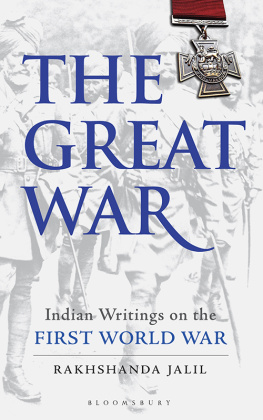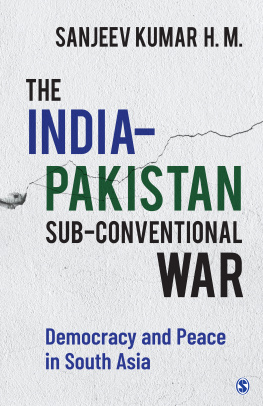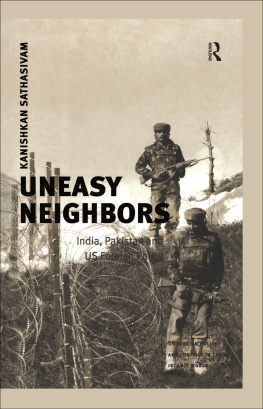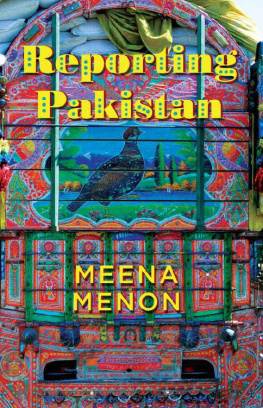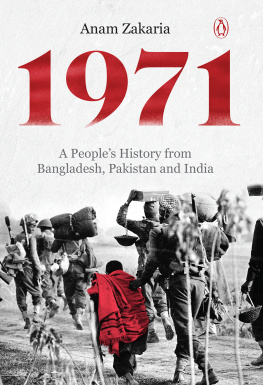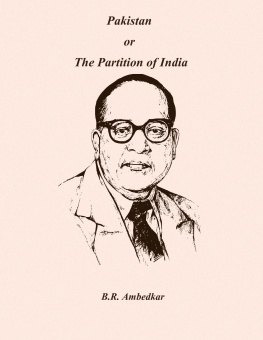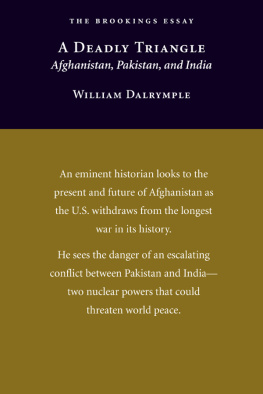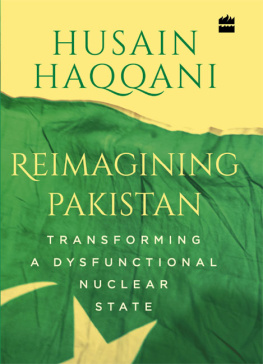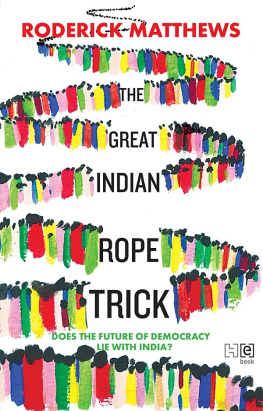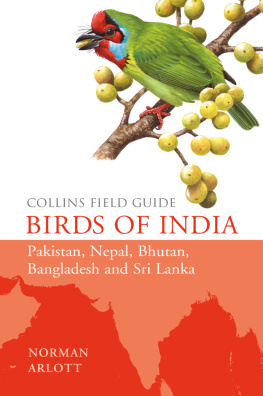TRANQUEBAR PRESS
New Urdu Writings
Rakhshanda Jalil went to Delhi Public School and graduated in English Literature from Miranda House, Delhi University. She also has a doctorate in The Progressive Writers Movement as Reflected in Urdu Literature from the Academy of Third World Studies, Jamia Millia Islamia, New Delhi.
A well known critic and literary historian, Rakhshanda Jalil has edited two collections of short stories; written a collection of essays on the little known monuments of Delhi; a literary biography of a feminist writer; and published more than eight works of translations, among several other publications.
Rakhshanda Jalil runs an organization called Hindustani Awaaz, devoted to the popularization of Hindi-Urdu literature and culture and blogs at www.hindustaniawaaz-rakhshanda.blogspot.com and another at IBN Live.
At present, she is engaged in a study of Indian secularism.
Raah-e mazmoon-e taaza band nahin
Ta qayamat khula hai baab-e sukhan
Wali Deccani (1667-1707)
(The path of new themes is not closed
The gateway of languages shall remain open till doomsday)
New Urdu Writings:
From India & Pakistan
Edited By
Rakhshanda Jalil

TRANQUEBAR PRESS
An imprint of westland ltd
61 Silverline Building, 2nd Floor, Alapakkam Main Road, Maduravoyal, Chennai 6000 095
No. 38/10 (New No.5), Raghava Nagar, New Timber Yard Layout, Bangalore 560 026
93, 1st Floor, Sham Lal Road, New Delhi 110 002
First published in India by TRANQUEBAR, an imprint of westland ltd 2013
Copyright Rakhshanda Jalil 2013
The copyright for the individual stories lies with the respective authors
All rights reserved
10 9 8 7 6 5 4 3 2 1
ISBN: 978-9-383-26037-9
Typeset by Ram Das Lal
This book is sold subject to the condition that it shall not by way of trade or otherwise, be lent, resold, hired out, circulated, and no reproduction in any form, in whole or in part (except for brief quotations in critical articles or reviews) may be made without written permission of the publishers.
Contents
Short Short Stories
Joginder Paul
Empty Bottles
Jeelani Bano
The Gun
Tariq Chhatari
Mourner of the Feet
Khalid Javed
The Slaughterhouse Sheep
Khurshid Akram
The Biggest Sin
Noor Zaheer
The Curfew is Strict
Anis Rafi
The Hyena Falls Silent
Syed Muhammad Ashraf
City
Tarannum Riyaz
A Nights Paradise
Faiyaz Riffat
The Last Show
Mazhar-uz-Zaman Khan
My Story
Shahida Yusuf
On Board the M V Gandhi...
Anwar Qamar
Pin-prick
Awaz Sayeed
Somewhere, Something is Lost
Anjum Usmani
Lest My Breath Disturb Thy Peace
Neelam Ahmed Basheer
The End of Time
Perveen Atif
Vanilla Crumble
Asif Farrukhi
A State of Emergency
Ahmed Hamesh
Revulsion
Hasan Manzar
Three Very Short Stories
Azra Abbas
Mughal Serai
Mirza Hamid Baig
Kumkum is Fine
Zahida Hina
Did the Pink Pigeons Win?
Fahmida Riaz
By the Time You Know
Salma Awan
The Eyes of Jacob
Mansha Yad
Snow
Neelofar Iqbal
The Man-eater
Nikhat Hasan
Jabalas Son
Intezar Husain
Coffin
Ali Akbar Natiq
Acknowledgements
I am deeply grateful to Dr Asif Farrukhi, an indefatigable writer, editor and dedicated translator from Pakistan. Asif has not only helped in the selection of some of the stories from Pakistan, but also put me in touch with some excellent translators from his country. Moreover, Asif has ungrudgingly given permission to use translations of some of the writings that have appeared in Duniyazad, the literary journal he edits from Karachi.
Dr Khalid Javed, of the Department of Urdu, Jamia Millia Islamia, gave valuable suggestions, as did Prof Shamim Hanafi, Professor Emeritus in the same department. The staff at the Zakir Husain Library everyone from the Librarian, Dr Ghayas Makhdumi to the two deputies, Dr Abidi and Dr Amera Khatun and Shahab Azmi in particular, helped in locating texts from the university librarys rich collection. Amera has since retired from the university library and I, too, have moved on from Jamia where I worked when I first began work on this volume several years ago; nevertheless, my link with the university and some of its staff remains in the form of this volume.
Prof Tariq Chhatari, of the Department of Urdu, Aligarh Muslim University, whose story has been included in this collection, helped in choosing other stories, too. As always, I have relied on his judgment and eclectic reading.
The Urdu poet, Shahryar, helped as always by providing support and encouragement. Knowing that he was but a phone call away and could remove doubts and throw valuable light was a source of much comfort both personally and professionally. His tragic passing away in February 2012 is an immense loss.
My mother, Mehjabeen Jalil, has not only translated a story for this collection but read many, many more and helped me as I trawled in a sea of stories, looking for the ones I wanted to include here. My daughter, Aaliya, helped in typing out my mothers translation done in long hand. Seeing them with their heads together, going over the nuances of words and meanings or industriously pecking away on my laptop, I am reassured that Urdu is alive and well in India.
I am grateful, also, to each of the contributors without whom this anthology would not be complete. For, it is their work that you hold in your hands today.
R J
Introduction
It will make very little difference if you read this book from back to front or the other, more conventional way, around. You may read it from cover to cover or you may dip into it, reading and resting, taking in its contents, mulling over them before reading some more. I can say with some certainty that the order or sequence will make very little difference because I have read and re-read these stories several times. First, when I was trawling dozens upon dozens of prospective choices, then when I had to make the final selection, once again when I sat down to write this Introduction and then several times over when I went through the proofs. Each time I was struck by the lack of difference.
I am not saying I have deliberately chosen thirty stories which are the same. No, far from it. The stories included within these covers deal with vastly different subjects, their tone and tenor vary, as does their style and substance not to mention the subtle individual quirks of the thirty different writers. Yet I do maintain it will make very little difference whether you read this book back to front or the otherway round. Because, taken together the sum of their parts these stories reflect shared, common, almost similar concerns. They traverse a terrain that is known and familiar and unmarked by artificial borderlines. No political fault lines, no evidence of a fissured landscape, no totemic poles of identity mar their territory. If the grouping under India and Pakistan was not there, it would have been difficult to tell them apart. And that, I suspect, is because Vanilla Crumble tastes the same on either side of the border.
Having said that let me hasten to add that, as the editor of this volume, I hold no particular brief for Indo-Pak ties. While I want friendship and peace on both sides of the border just as any sensible person would this book ought not to be hijacked either by the doves or the hawks in the peace-brokering initiatives of both countries. Avowedly apolitical as I am, this book was born of a purely literary impulse; my only purpose in putting together this volume is to showcase contemporary Urdu fiction. Having been dislocated, as it were from its moorings in the heartland of Upper India, Urdu has blossomed and borne fine fruit in the six decades of Independence. Soon after 1947, it thrust new roots in the alien soil west of the newly-created border and in its own homeland learnt to adapt and survive despite all odds and the hegemonic ascendance of the new national language. This book bears ample evidence of that efflorescence and also holds forth a testimony to its survival.
Next page

